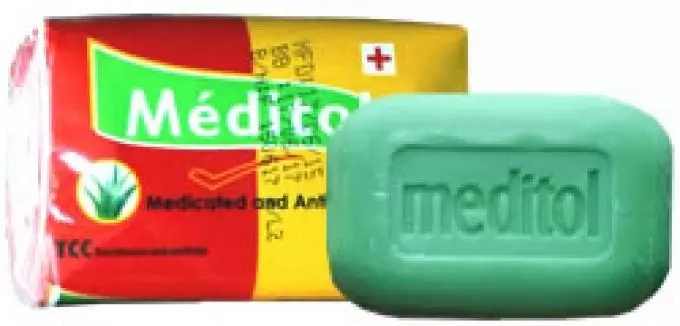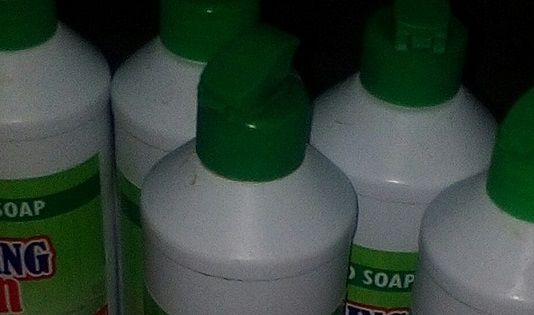11 Steps To Produce Antiseptic Soaps In Nigeria
Steps to Produce Antiseptic Soaps in Nigeria
See the ingredients and method on how to make medicated soap in Nigeria.
What Is An Antiseptic Soap
An antiseptic soap is a product made for cleaning the body and hands. This soap is a combination of detergent and ingredients containing antimicrobial properties.
👉 Relocate to Canada Today!
Live, Study and Work in Canada. No Payment is Required! Hurry Now click here to Apply >> Immigrate to CanadaThese soaps were originally produced and sold as deodorant soap to control body odour caused by the action of bacteria on human perspiration.
The soaps were originally sold in bar form, some of which are still in production, but liquid detergents for hand cleansing have increased more in production today, owing to the fact that it is very convenient to use and keep around in both homes and in offices; more so that periodic hand washing is encouraged today than ever.
Read Also: How To Produce Bathing Soap In Nigeria

Demand For Antiseptic Soaps In Nigeria
The level of production of antiseptic soaps is in its all times high generally in the global industry and particularly in Nigeria.
Gone are the days when this brand of soaps was a luxury to a privileged class of people because of its high cost. Thanks to dissemination of knowledge, anyone can now learn to produce it.
The rise in the demand for this type of soaps is because of poor waste management systems in the country which have resulted in the replication of so many disease-causing microorganisms in many neighbourhoods in Nigeria.
There’s been no time that Air, Water and Land Pollution are a threat to man’s health than now. As a result, the need for antiseptic soaps has grown justifiably high.
Yes, households need to protect their loved ones from germs; no one wants to court their company. Hence, as the saying goes, “Prevention is better than cure”.
👉 Relocate to Canada Today!
Live, Study and Work in Canada. No Payment is Required! Hurry Now click here to Apply >> Immigrate to CanadaLike every other soap, antiseptic soaps can be prepared locally and industrially, the most important thing is, they are available.
In this article I will be showing you practicable and simple steps to follow on how you can successfully and conveniently produce this kind of soap from the comfort of your home.
Read Also: How To Produce Laundry Soap In Nigeria
Antiseptic Soap Design
The producer of antiseptic soaps should bear in mind that the purpose of making the product is to kill germs and cleanse the skin.
The types of organisms (e.g bacteria, fungi and viruses, etc), the product should kill and the time frame it is supposed to be effective are part of the things he/she is to bear in mind. Other things the formulator must be abreast with are listed below:
1. Foam quality
2. Speed of foaming
3. instability and skin feel
4. colour, and
5. smell, etc.
The formulator has to put all these points into consideration in order to come up with a wonderful and very effective product.
Ingredients For making Antiseptic Bar Soap
Now, let me unmask the ingredients needed to make this all important soap to you at this point and at no cost. They are listed below:
Read Also: How To Package Liquid Soap In Nigeria
1. O.K (Palm Oil Kernel): this is an edible oil (but different from cooking oil). This oil is extracted from the kernel of oil Palm Elaeis guineesis. It is however different from the common red oil that is extracted from the Palm Oil fruit.
2. Caustic Soda (Lye/Sodium Hydroxide: this anhydrous (100% solid) sodium hydroxide has a molecular formula of NaOH and molecular weight of 40.00g. This is a cleaning agent in the soap.
3. Soda Ash (otherwise known as Sodium Sulphate anhydrous): it is the anhydrous of Sodium Sulphate that dissociates in water to provide sodium ion and sulphate ion. Its function is to make the soap thicker.
4. Silicate (Sodium Silicate): it is also an alkaline salt which has distinct properties others lack. It functions as both a cleaner and a thickener.
5. Pine Oil: this essential oil is obtained by steam distillation of stumps, needles, twigs and cones of a variety of species of pine trees, particularly pinus sylvestris. This oil is a cleaning agent.
6. Colour: for the beauty of the antiseptic soap, colour is needed.
Equipment Needed to Produce Antiseptic Soaps in Nigeria
Although having all the complete equipment is good but can make do with basic equipment such as the ones enumerated below which can be purchased from any Soap reagent stores.
1. Hand gloves – optional
2. Nose mask – optional
3. Nylon sheets – optional
4. Stamping machines – optional
5. A mould – compulsively
6. Bowls or Containers (plastic buckets) – compulsory
7. A mixer (plastic or metal but not aluminium containers) – compulsory
8. A measuring scale (in kg or litter) – optional, since you already bought the right measurement.
Quality Of Chemical Used in Producing Antiseptic Soaps
There are two columns below. One shows the Chemicals and the other shows the Quantity.
Read Also: 9 Harmful Effects Of Skin Bleaching Creams To Your Health
Chemical Quantity
1. K.O (Palm Kernel Oil) 3 litters
2. Caustic Soda ½ Kg
3. Soda Ash ½ Kg
4. Sulphate ½ Kg
5. Silicate ¼ Kg
6. Pine Oil 1/8 litters
7. Colour As desired
8. Perfume As desired
11 Steps to Produce Antiseptic Soaps in Nigeria
Note here that you MUST turn in one direction only. You can either turn clockwise or anticlockwise – but it must be in one direction. Learn how to make antiseptic bathing soap below;
Step 1: Get three clean bowls A,B and C ready.
Step 2: Soak the caustic soda in Bowl A with ½ litter of water for at least 24 hours
Step 3: Soak the Soda Ash in Bowl B with ½ litter of water at least for 24 hours.
NOTE: After 24 hours you are ready for production!
Step 4: Put all the P.K.O in Bowl C with 2 litters of water.
Step 5: Pour the content of Bowl A and Bowl B into Bowl C one after the other. (The Bowl containing the P.K.O).
*** Remember to stir in ONE direction!
Step 6: Pour the Sulphate into Bowl C and stir in one direction.
Step 7: Pour the Silicate into Bowl C and stir in one direction.
Step 8: Pour Pine Oil into Bowl C and stir in one direction.
Step 9: Mix the colour in a small amount of water and pour the colour in Bowl C and stir in one direction.
Step 10: Pour the right amount of perfume into Bowl C and stir in one direction.
Step 11: Pour the End Mixture in a mould to set.
Read Also: How To Make Body Lotion In Nigeria
Conclusion On The Production Of Antiseptic Soap.
In the article, we learn how to make medicated soap in Nigeria. With the detailed explanation and steps provided in this article on how to produce antiseptic soaps, I am convinced you will take advantage of the opportunity and start producing your own brand of this type of soap in your locality.
Share your products with friends, family and colleagues and try to get their feedback; this is to enable you improve on your skill in this regards.
Feel the excitement, and who knows, your product might become as effective as Dettol, and rising up as one of the major competitors in the market.
